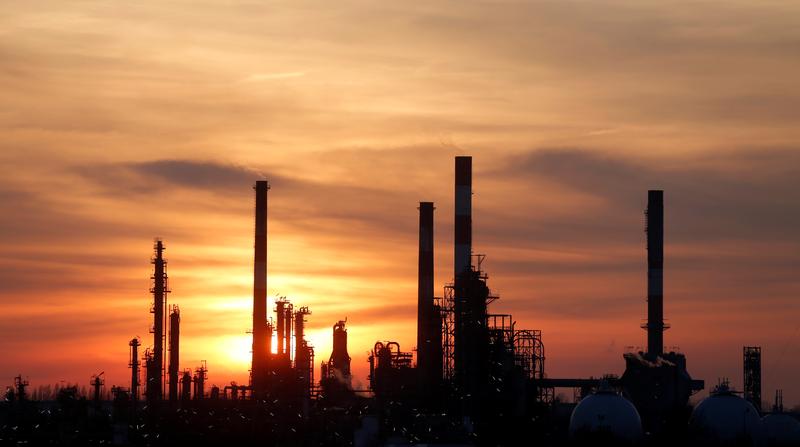LONDON (Reuters) -Oil prices retreated from multi-month highs as the prospect an upsurge in the novel coronavirus will lead to tougher movement restrictions offset expectations OPEC and allied producers will decide on Monday to cap output at current levels for now.
Brent crude rose 6 cents, or 0.1%, to $51.86 a barrel at 1244 GMT, while U.S. West Texas Intermediate (WTI) crude fell 17 cents, or 0.4%, to $48.35 a barrel.
Both contracts rose sharply earlier in the session, with Brent trading at $53.33 a barrel, the highest since March 2020. U.S. crude touched $49.83 a barrel, the highest since February 2020.
“With WTI not able to reach the level of $50 per barrel, some profit taking might have set in,” UBS analyst Giovanni Staunovo said.
“Also the likely extension of mobility restrictions across several European countries might have been a trigger causing oil prices to erase earlier gains. Market players will also closely track the outcome of today’s OPEC+ meeting.”
OPEC and allies, a group known as OPEC+, will meet on Monday. Most OPEC+ officials voiced opposition to increasing oil output from February when they met on Sunday, three OPEC+ sources told Reuters on Monday.
In December, OPEC+ decided to increase production by 0.5 million barrels per day (bpd) from January as part of a 2 million bpd gradual rise this year, but some members have questioned the need to release more oil because of the upsurge in the COVID-19 pandemic.
“The start of the new year is presenting challenges to the OPEC+ group, as the balance of risks to oil demand recovery has changed,” BNP Paribas analyst Harry Tchilinguirian said.
Kuwait’s oil minister said he expected a gradual recovery in oil demand, particularly in the second half of 2021, as many countries start to distribute coronavirus vaccines.
Britain began vaccinating its population with the COVID-19 shot developed by Oxford University and AstraZeneca on Monday.
Tensions in the Middle East also supported oil prices after Iran’s Revolutionary Guards seized a South Korean-flagged tanker and its crew were detained for polluting the Gulf with chemicals.
Oil also drew strength from a weaker dollar and strong manufacturing activities in Asia and Europe. U.S. factory activity data is expected later on Monday.
Source: Read Full Article
